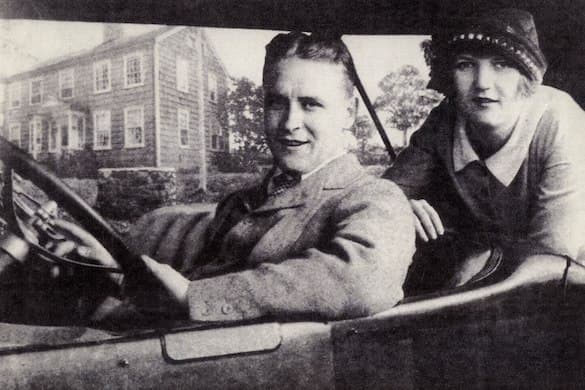Parsing the Many Lives of F. Scott Fitzgerald
The author’s aim is to show why biographies of Fitzgerald are unstable, requiring a work such as his to highlight their variability, depending on the nature of the evidence selected and the biases of the biographer.

‘Some Unfinished Chaos: The Lives of F. Scott Fitzgerald’
By Arthur Krystal
University of Virginia Press, 232 pages
Arthur Krystal’s book is a meditation on the epistemology of biography as much as it is a biography of F. Scott Fitzgerald. Mr. Krystal’s aim is to show why biographies of Fitzgerald are unstable, requiring a work such as his to highlight their variability, depending on the nature of the evidence selected and the biases of the biographer.
Mr. Krystal observes: “Fitzgerald’s problem (and that of his biographers) is the depth and breadth of his polarities, though sometimes the contradictions can be explained by circumstances.” The artist as genius, the atrocious alcoholic, the romantic cultural icon, the dreary Hollywood hack, the hateful/devoted husband — biographers have not confronted this contradictoriness, and as a result each biography has been a partial portrayal, and it is precisely the partiality of biographies that Mr. Krystal seeks to expose.
Like Janet Malcolm’s “The Silent Woman: Sylvia Plath and Ted Hughes,” Mr. Krystal has a beef with biography, and like Malcolm, he administers a therapeutic dose of skepticism about what biography can accomplish. At the same time, like Malcolm, his own work is built on those flawed biographies that have a cumulative, corrective impact on one another, and reveal that biographies, too, are the contradictory products of circumstance.
Mr. Krystal is aware that he cannot divorce himself from the faults he finds in other Fitzgerald biographies: “No doubt I am also guilty of channeling a certain bias into my criticism, but it is, I like to think, an ecumenical bias.” We learn, in other words, about a range of biases that no single Fitzgerald biographer has probed.
“Some Unfinished Chaos” is, in Mr. Krystal’s words, a “layering of impressions that never quite manages to permanently settle.” He is faithful to the problematics of biography when he uses phrases such as, “For reasons one can only guess at,” or, “One likes to think,” or, “You can, if you want, already see the tragedy taking shape.” He puts the reader on the spot, so to speak, as well as the biographer.
Janet Malcolm put forward an attack on biographers who invade the subject’s privacy, which Mr. Krystal adopts when he acknowledges that he, too, is plundering his subject’s personal history. This argument has never made sense to me: The only way for a biographer not to invade anyone’s privacy is to shut up, and how can that be possible when the subjects of biography have put forward narratives of their lives?
Why do we have to respect a biographical subject’s tendentious version of truth? It may make a biographer feel better about confessing to a certain prurience, but I don’t find the admission against interest persuasive. The argument just gets reductive when Mr. Krystal writes about “peeping into keyholes that narrow and diminish both reader and subject.” Some readers hostile to biography will cheer, but I don’t buy it.
Critics of biography often behave as though there is a standard of truth by which biography can be measured. What would that standard be? The only possible answer, it seems to me, is the very standard that each biography of a subject establishes and that will be challenged, corrected, or supplemented by succeeding biographies.
What Mr. Krystal shows quite admirably, though, is that what you think of Fitzgerald is subject to constant revision, which means the common complaint that a biographical subject has been done to death is nugatory.
Fitzgerald scholars will have a good time arguing about this book, but Mr. Krystal’s graceful, lucid style should have an appeal to all sorts of readers: They will enjoy seeing the lives of Scott and Zelda Fitzgerald given a refreshing and searching treatment that will also demonstrate that how much of what they think they know about this couple cannot be detached from whatever biographies they have read.
Mr. Krystal has sought to liberate Fitzgerald from his biographers, and though that cannot be an entirely successful enterprise, it is worth doing so as to make all of us better readers of biography.
Mr. Rollyson writes about Zelda Fitzgerald in “American Biography.”

